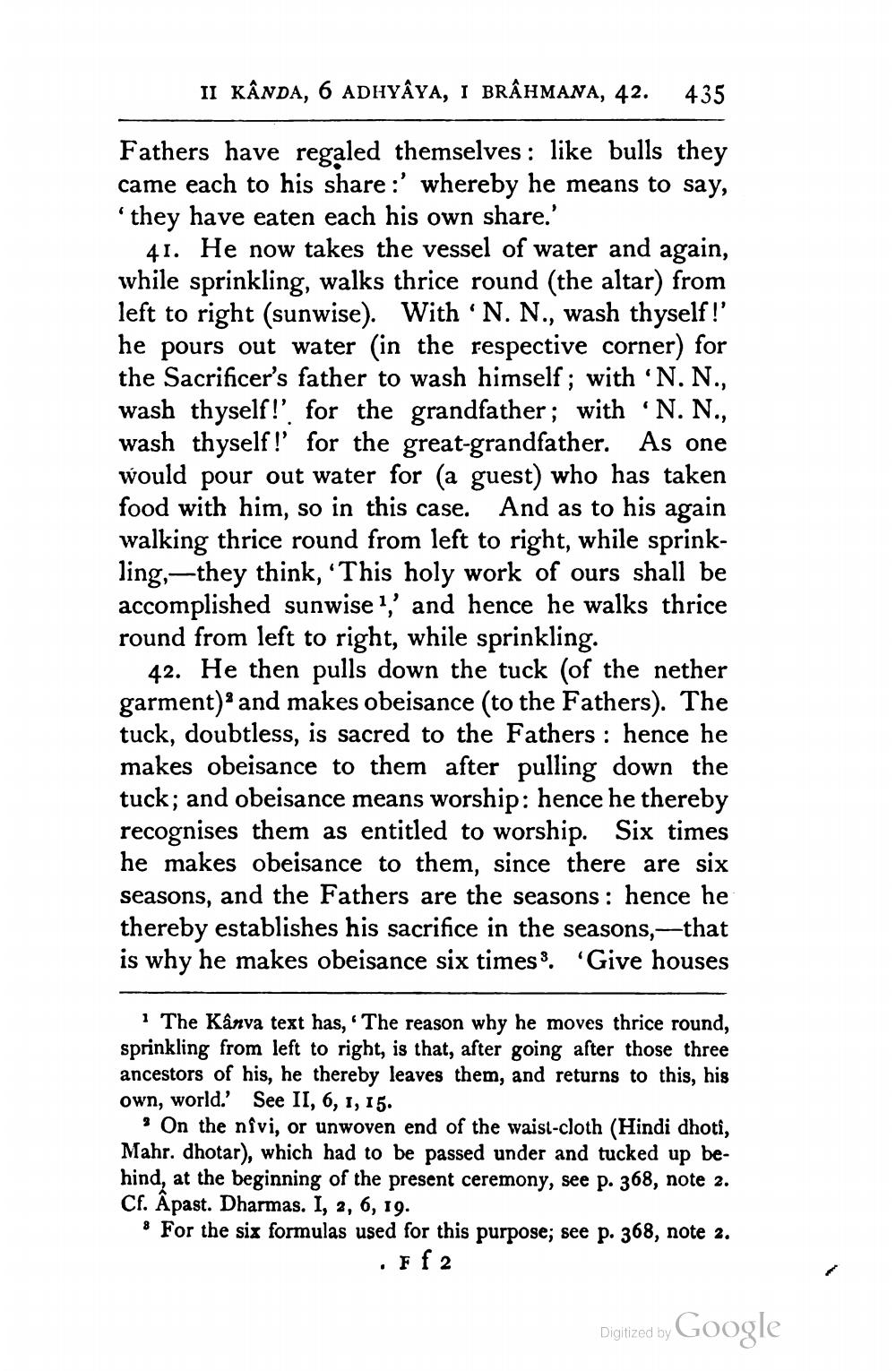________________
II KÂNDA, 6 ADHYAYA, I BRÂHMANA, 42.
435
Fathers have regaled themselves: like bulls they came each to his share:' whereby he means to say, 'they have eaten each his own share.'
41. He now takes the vessel of water and again, while sprinkling, walks thrice round (the altar) from left to right (sunwise). With 'N. N., wash thyself!' he pours out water in the respective corner) for the Sacrificer's father to wash himself; with 'N. N., wash thyself!' for the grandfather; with ‘N. N., wash thyself!' for the great-grandfather. As one would pour out water for (a guest) who has taken food with him, so in this case. And as to his again walking thrice round from left to right, while sprinkling,—they think, 'This holy work of ours shall be accomplished sunwise 1,' and hence he walks thrice round from left to right, while sprinkling.
42. He then pulls down the tuck (of the nether garment) and makes obeisance (to the Fathers). The tuck, doubtless, is sacred to the Fathers : hence he makes obeisance to them after pulling down the tuck; and obeisance means worship: hence he thereby recognises them as entitled to worship. Six times he makes obeisance to them, since there are six seasons, and the Fathers are the seasons: hence he thereby establishes his sacrifice in the seasons,—that is why he makes obeisance six times 8. 'Give houses
1 The Kânva text has, The reason why he moves thrice round, sprinkling from left to right, is that, after going after those three ancestors of his, he thereby leaves them, and returns to this, his own, world. See II, 6, 1, 15.
On the nivi, or unwoven end of the waist-cloth (Hindi dhoti, Mahr. dhotar), which had to be passed under and tucked up behind, at the beginning of the present ceremony, see p. 368, note 2. Cf. Âpast. Dharmas. I, 2, 6, 19. * For the six formulas used for this purpose; see p. 368, note 2.
Ff2
Digitized by Google




